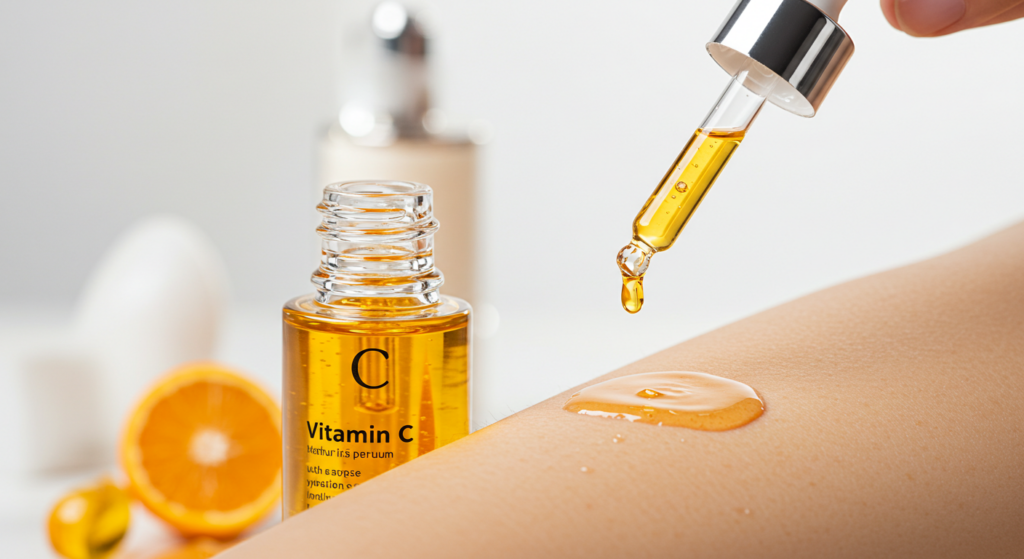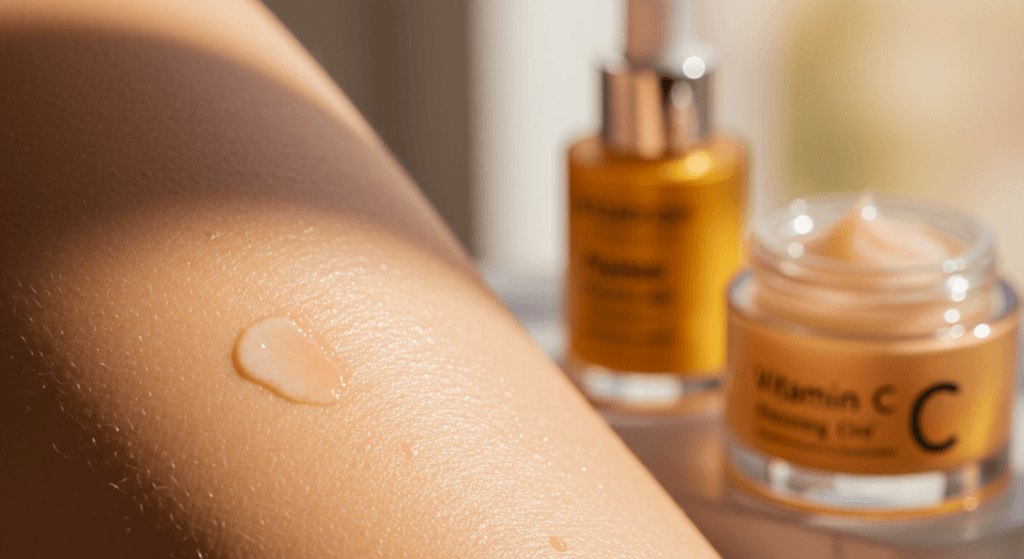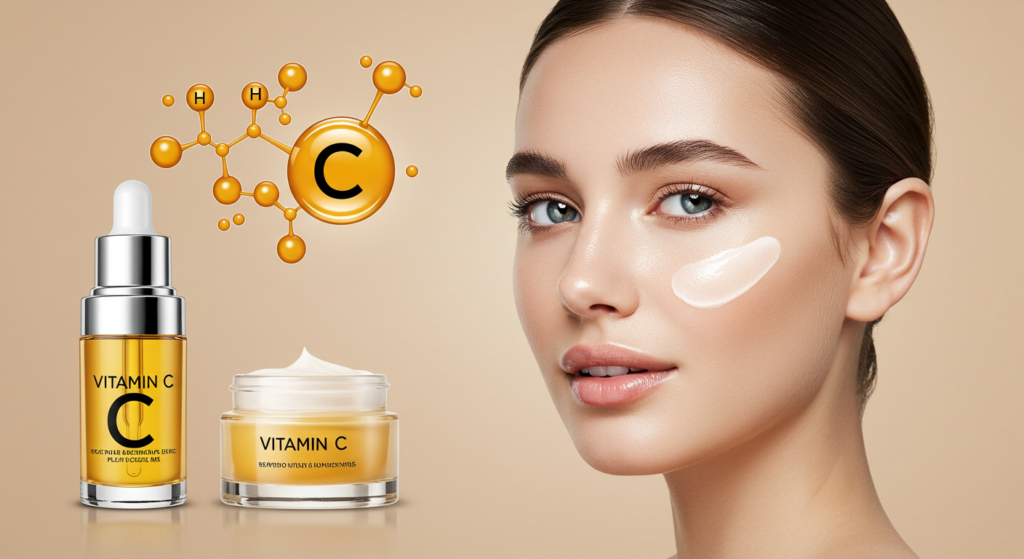Acne scars, a common aftermath of acne breakouts, can significantly impact one’s self-esteem and confidence. While complete scar eradication is often impossible, various treatments aim to minimize their appearance. One popular ingredient touted for its scar-reducing properties is vitamin C. This article will delve into the science behind vitamin C’s potential benefits in acne scar treatment.

Understanding Acne Scar Formation
Acne scars result from the body’s healing process after an acne lesion. The severity of the scar depends on the depth and extent of the initial acne inflammation. Inflammatory acne, characterized by papules, pustules, and nodules, is more likely to leave behind scars than non-inflammatory acne (comedones). These scars can manifest in several forms, including ice pick scars (deep, narrow pits), boxcar scars (broad, deep depressions), rolling scars (wavy, uneven texture), and hypertrophic or keloid scars (raised, thickened tissue). Understanding the type of scar is crucial in determining the most effective treatment approach.
The inflammatory process associated with acne disrupts the normal collagen and elastin production in the skin. Collagen provides structural support, while elastin gives the skin its elasticity. Damage to these proteins leads to the formation of depressed scars. Furthermore, excessive inflammation can trigger an abnormal wound healing response, resulting in the formation of hypertrophic or keloid scars. The depth and extent of the damage dictate the visible characteristics of the scar.
The timing of intervention is also critical. Early treatment of acne lesions can help prevent the formation of severe scars. Addressing inflammation promptly reduces the likelihood of significant collagen disruption. Once a scar has formed, treatment focuses on stimulating collagen production and improving skin texture. This process can be lengthy and may require a combination of treatments for optimal results.
Different scar types respond differently to treatment modalities. For instance, shallow scars may respond well to topical treatments, whereas deep scars might require more aggressive interventions like laser therapy or dermal fillers. A thorough evaluation by a dermatologist is essential to determine the appropriate treatment strategy based on the individual’s scar type and skin condition.
Vitamin C’s Role in Skin Repair
Vitamin C, also known as L-ascorbic acid, is a potent antioxidant that plays a crucial role in collagen synthesis. It acts as a cofactor for prolyl hydroxylase and lysyl hydroxylase, enzymes essential for the formation of stable collagen fibers. By boosting collagen production, vitamin C helps improve skin firmness, elasticity, and overall texture. This is particularly beneficial in the context of acne scarring, where collagen disruption is a significant factor.
Beyond collagen synthesis, vitamin C exhibits antioxidant properties, protecting the skin from free radical damage caused by UV radiation and environmental pollutants. This protective effect is vital because free radicals can further exacerbate skin damage and hinder the healing process. By neutralizing free radicals, vitamin C helps maintain the skin’s integrity and promotes a healthier healing environment.
Furthermore, vitamin C has anti-inflammatory properties, which can help reduce redness and inflammation associated with acne scars. This reduction in inflammation contributes to improved skin tone and a smoother appearance. By addressing both the collagen deficiency and the inflammatory component of scar formation, vitamin C offers a multifaceted approach to scar improvement.
The concentration of vitamin C in topical products is crucial for efficacy. Studies suggest that concentrations of 10-20% L-ascorbic acid are generally effective. However, it’s important to note that vitamin C is unstable and can degrade quickly when exposed to air and light. Therefore, choosing a well-formulated product with appropriate preservatives and packaging is essential to ensure its effectiveness.
Scientific Evidence & Clinical Trials
While anecdotal evidence and in-vitro studies support the beneficial effects of vitamin C on collagen synthesis and wound healing, robust clinical trials specifically focusing on its efficacy in treating acne scars are limited. Many studies incorporate vitamin C as part of a multi-modal treatment approach, making it difficult to isolate its individual contribution to scar improvement.
Several studies have shown that topical vitamin C, often in combination with other treatments like retinoids or chemical peels, can improve the appearance of acne scars. These studies often report improvements in skin texture, tone, and reduction in scar depth and pigmentation. However, the magnitude of improvement varies depending on the scar type, treatment duration, and the individual’s response.
The lack of large-scale, randomized controlled trials specifically evaluating the efficacy of vitamin C alone in acne scar treatment limits definitive conclusions. More research is needed to establish the optimal concentration, formulation, and duration of vitamin C treatment for different types of acne scars. Currently, available evidence suggests that vitamin C is a valuable adjunct therapy, rather than a standalone treatment.
Future research should focus on designing well-controlled clinical trials to assess the efficacy of vitamin C in various acne scar types, comparing it to placebo and other established scar treatments. This will provide more concrete evidence to support its role in acne scar management and guide clinicians in recommending appropriate treatment strategies.

Incorporating Vitamin C for Scar Treatment
Vitamin C serums are readily available over-the-counter, but choosing the right product is crucial. Look for serums containing a concentration of 10-20% L-ascorbic acid, and check for the presence of antioxidants and preservatives to enhance stability. Avoid products that contain ingredients that may irritate sensitive skin, particularly those with acne scars.
Start by using the serum once daily, ideally at night after cleansing and toning your skin. Introduce it gradually to assess your skin’s tolerance. Some individuals may experience mild irritation initially, such as redness or tingling. If irritation occurs, reduce the frequency of application or dilute the serum with a moisturizer.
Combine vitamin C with other complementary treatments for optimal results. Retinoids, chemical peels, and microneedling can enhance the effects of vitamin C by improving skin penetration and stimulating collagen production. Always consult a dermatologist to create a personalized treatment plan that addresses your specific scar type and skin concerns.
Patience is key when using vitamin C for scar treatment. Significant improvements may not be visible immediately. Consistent use over several months is often necessary to see noticeable results. Regular follow-up with your dermatologist will allow for monitoring of progress and adjustments to the treatment plan as needed.
While vitamin C shows promise in improving the appearance of acne scars by boosting collagen production and offering antioxidant and anti-inflammatory benefits, more robust clinical research is needed to definitively establish its efficacy as a standalone treatment. However, current evidence suggests that it can be a valuable component of a comprehensive acne scar treatment plan when used in conjunction with other modalities and under the guidance of a dermatologist. Remember to choose high-quality products and be patient for optimal results.
Discover the expertise of Dr. Ebru Okyay, your trusted dermatologist in Antalya. Whether you’re looking to address medical skin concerns or enhance your natural beauty with cosmetic treatments, Dr. Okyay is here to help. With personalized care and advanced techniques, achieving your skin goals has never been easier.
